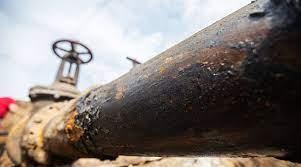The Mamata Banerjee government has decided to bring village schools, anganwadi centres and hospitals under the Jal Swapno scheme which was originally initiated to provide pipeline-based water supply to nearly 2 crore rural households in Bengal.
A senior state government official said most such facilities in rural areas didn’t have piped water and hence, a decision was taken to include educational institutions and healthcare centres in the scheme.
Chief secretary H.K. Dwivedi had recently asked district magistrates to prepare the lists of schools, anganwadi centres and hospitals which needed to be linked to the Jal Swapno scheme at villages and send the same by end of August.
According to sources, the state government is trying to ensure piped water for maximum number of rural households and the facilities, which were included in the priority list, before the 2024 Lok Sabha polls.
“The target is that maximum number of people reap the benefits of the scheme before the next general election. The Trinamul Congress wants to prevent the BJP from making the scheme as a campaign tool ahead of the 2024 Lok Sabha polls,” said an official.
The chief secretary also asked the district magistrates to monitor the scheme on a weekly basis and send reports to Nabanna.
“We are already lagging behind... In 2020-21, we were supposed to give pipeline connections to 45 lakh households, but we could bring just 18 lakh under the scheme.
This year, the target is to give 45 lakh connections, but it is clear we can take piped water to over 70 lakh consumers. It would be tough to achieve the target by the end of 2023, which is the deadline set by the state government,” said a source.
Sources said the Rs 58,000 crore project — to be shouldered by the Centre and the state on a 50:50 basis — would require huge quantum of land to set up pumping stations and other facilities.
Dwivedi asked the district magistrates to send proposals for purchasing land directly for the project and also find out unused government plots which could be used for the scheme.
A source said water connections would have to be given at most to 50,000 schools, anganwadi centres and hospitals at villages.
“If we can connect to 2 crore rural households, we would be able to link another 50,000 establishments to the scheme. We hope that the Covid-19 situation remains under control in the next few months. If the situation deteriorates, we would face trouble to complete the scheme on time,” said an official.











